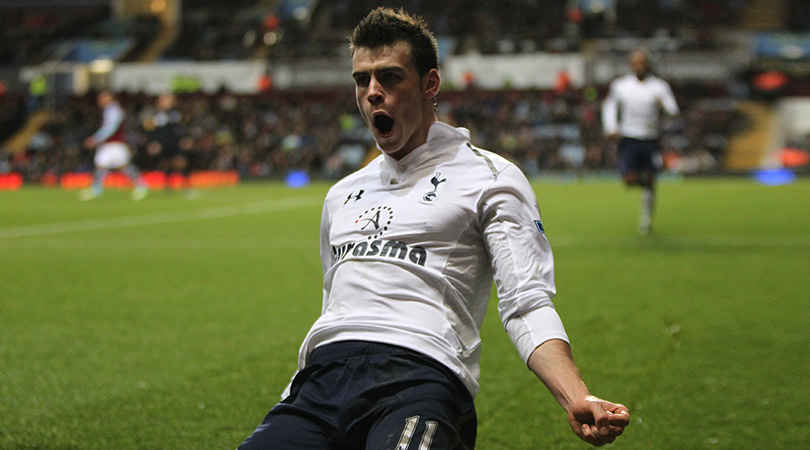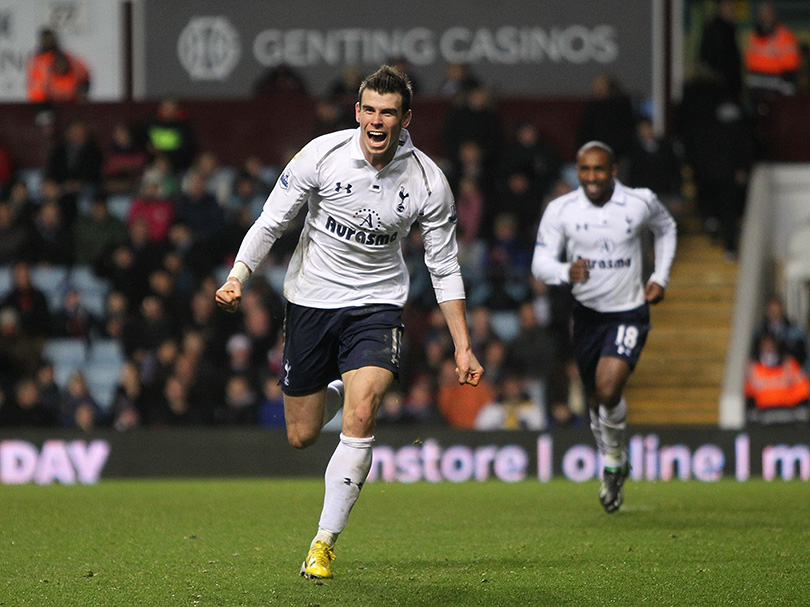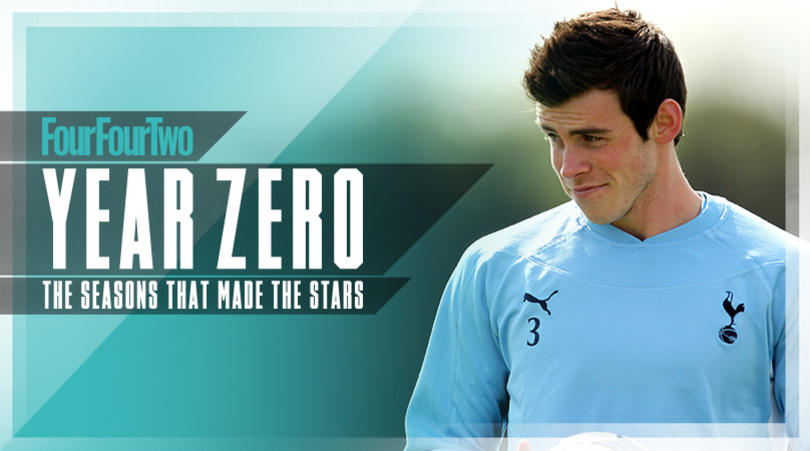When Gareth Bale was unplayable: remembering his golden 2012/13 at Tottenham
The Welshman’s stock couldn’t be lower during a bitter impasse at Real Madrid, but once upon a time he was irresistible for the Spanish giants after a stunning season at Spurs

“This year, the player who’s impressed me most is not actually playing in the Champions League,” said Zinedine Zidane in April 2013. “He’s playing in the ‘other cup’ (Europa League), and that’s Gareth Bale.
“He is unique; he makes things look easy, his pace is frightening,” gushed the Real Madrid icon, adding that Bale was “not far off” Cristiano Ronaldo and Lionel Messi.
The hottest love has the coldest end, as Socrates and Drake said. Zidane’s icy treatment of Wales’s record goalscorer, attempting to bundle him out the back door for the bin men, is hard to square with the passion he displayed in those early days of courtship.
But Zidane was just another voice in the choir back then. Bale was untouchable in his golden season of 2012/13, when he took both Footballer of the Year prizes. His 21 goals in 33 league appearances added 24 points to Spurs’ total, but that scarcely does his contributions justice.
Opposition managers’ press conferences were routinely dominated by discussion of how to stop Spurs’ No.11. They might as well have been trying to stop the rain from falling. Bale was a force of nature that rendered defences and game plans irrelevant.

Some victims despaired at the unfairness of it all. “We’ve been beaten by Gareth Bale,” said Sam Allardyce after an otherworldly exhibition at Upton Park. Others just sounded grateful to have shared in his transcendent moment. In his final season, Sir Alex Ferguson spoke wistfully of one that got away.
Bale’s brilliance came despite playing in a middling Spurs team with an otherwise limited attack, under the confused and directionless leadership of Andre Villas-Boas, who would bow out in a blaze of hammerings the season after Bale was sold.
Get FourFourTwo Newsletter
The best features, fun and footballing quizzes, straight to your inbox every week.
In 2012/13, this was a team that had just flogged Luka Modric and Rafael van der Vaart, and replaced them with Gylfi Sigurdsson and Clint Dempsey. Steven Caulker and Kyle Naughton were regular starters. Spurs failed to defeat Norwich in three attempts that season.
Having evolved from cursed full-back to devastating winger, Bale’s role changed again as he moved infield to a free role behind a lone striker. Instead of pounding the left flank for 90 minutes he became a player of moments; anonymous for long periods like a predator stalking the savannah, before exploding with stunning violence to make his kill.
Bale’s season was a slow burn that built to a climax. He used Rio Ferdinand as a training cone in victory at Old Trafford in September, then struck in successive matches against Arsenal, West Ham and Liverpool in November.
But in the new year he floored the accelerator. From a cannonball run through Norwich’s backline in January to a last-minute missile against Sunderland on the final day, Bale racked up 12 goals in 14 appearances – more than half Spurs’ total in those games – and assisted five more. Most of the goals belonged in a fine art gallery and all but one altered the result.
The Welshman demonstrated mastery of almost every type of finish in that season. Neat clips over the keeper, soaring headers, belted half-volleys and wickedly-dipping dead-balls. But the quintessential Bale goal was the one that combined his primary assets of pace, technique and determination. See him running onto his own weighted through ball to score against West Ham; the muscular surge and cute chip against Manchester City; the tackle, sprint and finish to beat Newcastle.
QUIZ! Can you name Gareth Bale's 50 most frequent team-mates?
The Welshman was more of a finisher than creator that season, but he carved out plenty too. There were pinpoint crosses for goals against Liverpool and Manchester City, a dreamy through-ball at Swansea, and rampages through defences that left Dempsey or Jermain Defoe free. He also bought showmanship, reserving his most audacious tricks for opponents who tried to kick him out of games, as with a breathtaking pirouette at Leeds.
More than his outrageous gifts, it was Bale’s force of will that set him apart. In a team that played sideways more than forward, it was up to the Welshman to win games. Time after time, he delivered.
With Spurs’ Champions League hopes hanging by a thread, when a dead game was ebbing away and circumstances favoured the opposition, Bale would find a phonebox, don his cape and bend fate his way once again with another lightning strike.
Of course, it wasn’t enough in the end. As was then traditional, Spurs missed out on Champions League qualification to Arsenal on the final day. But no one could conceivably have done more or dragged an ordinary team further than Bale, and no one could fairly begrudge his record move to Madrid.
His greatness seemed guaranteed back then, a fact of life, and he would surely go on to put his name up in lights with the Gods of the game. In a way he did with his Champions League titles and occasionally spectacular contributions. But the challenge to Ronaldo never materialised and the Ballon d’Or stayed out of range.
These days, as he’s booed by fans, insulted by his manager and almost been shipped out on a free transfer, it’s sometimes difficult to remember the player Bale was. But nobody before or since has played in the Premier League quite like Gareth in his golden season.
While you're here, why not take advantage of our brilliant subscribers' offer? Get 5 issues of the world's greatest football magazine for £5 – the game's greatest stories and finest journalism direct to your door for less than a pint in London. Cheers!
NOW READ
LIST 11 football shirts that were actually improved by a sponsor
PREDICTIONS 9 things we think will happen in the 2019/20 Premier League season
ADVICE 27 essential Fantasy Premier League tips from old winners and experts

